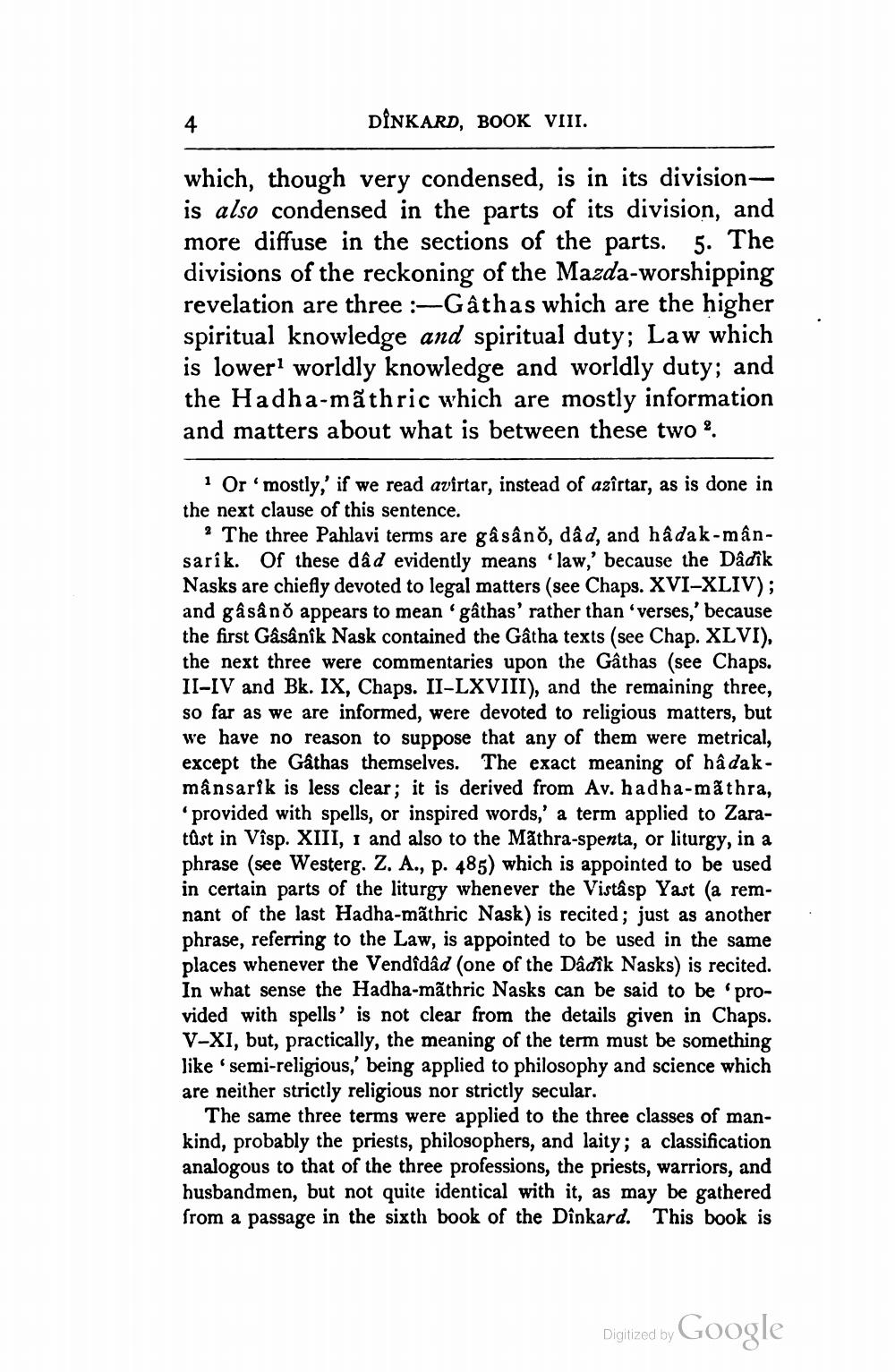________________
DINKARD, BOOK VIII.
which, though very condensed, is in its divisionis also condensed in the parts of its division, and more diffuse in the sections of the parts. 5. The divisions of the reckoning of the Mazda-worshipping revelation are three :-Gâthas which are the higher spiritual knowledge and spiritual duty; Law which is lower' worldly knowledge and worldly duty; and the Hadha-mãthric which are mostly information and matters about what is between these two 2.
1 Or 'mostly,' if we read avirtar, instead of azîrtar, as is done in the next clause of this sentence.
2 The three Pahlavi terms are gâsâno, dâd, and hâdak-mânsarik. Of these dad evidently means 'law,' because the Dâdik Nasks are chiefly devoted to legal matters (see Chaps. XVI-XLIV); and gâsânð appears to mean 'gâthas' rather than 'verses,' because the first Gâsânîk Nask contained the Gâtha texts (see Chap. XLVI), the next three were commentaries upon the Gâthas (see Chaps. II-IV and Bk. IX, Chaps. II-LXVIII), and the remaining three, so far as we are informed, were devoted to religious matters, but we have no reason to suppose that any of them were metrical, except the Gathas themselves. The exact meaning of hâdakmânsarik is less clear; it is derived from Av. hadha-mathra,
provided with spells, or inspired words,' a term applied to Zaratûst in Visp. XIII, I and also to the Mathra-spenta, or liturgy, in a phrase (see Westerg. 2. A., p. 485) which is appointed to be used in certain parts of the liturgy whenever the Vistâsp Yast (a remnant of the last Hadha-mãthric Nask) is recited; just as another phrase, referring to the Law, is appointed to be used in the same places whenever the Vendidâd (one of the Dâdîk Nasks) is recited. In what sense the Hadha-mãthric Nasks can be said to be provided with spells' is not clear from the details given in Chaps. V-XI, but, practically, the meaning of the term must be something like 'semi-religious,' being applied to philosophy and science which are neither strictly religious nor strictly secular.
The same three terms were applied to the three classes of mankind, probably the priests, philosophers, and laity; a classification analogous to that of the three professions, the priests, warriors, and husbandmen, but not quite identical with it, as may be gathered from a passage in the sixth book of the Dînkard. This book is
Digitized by Google




